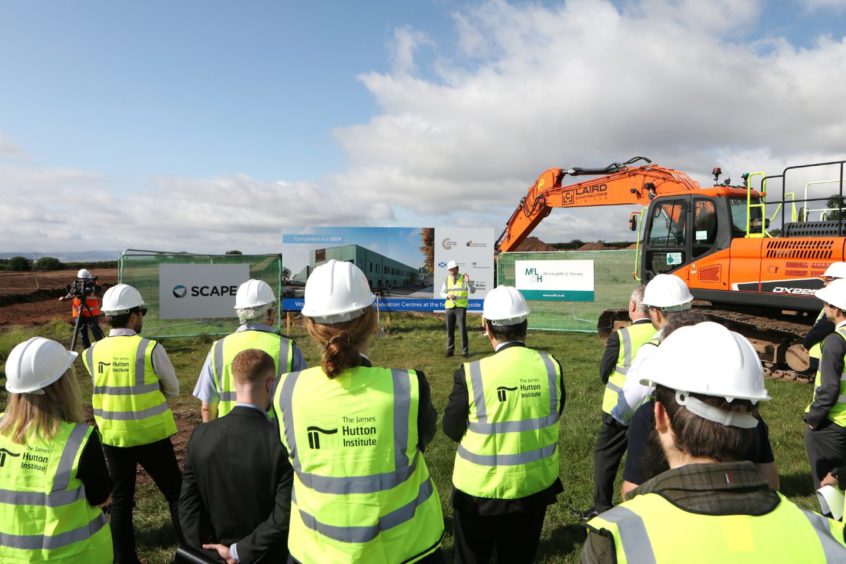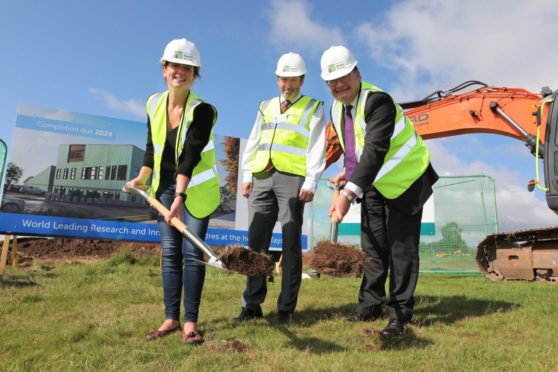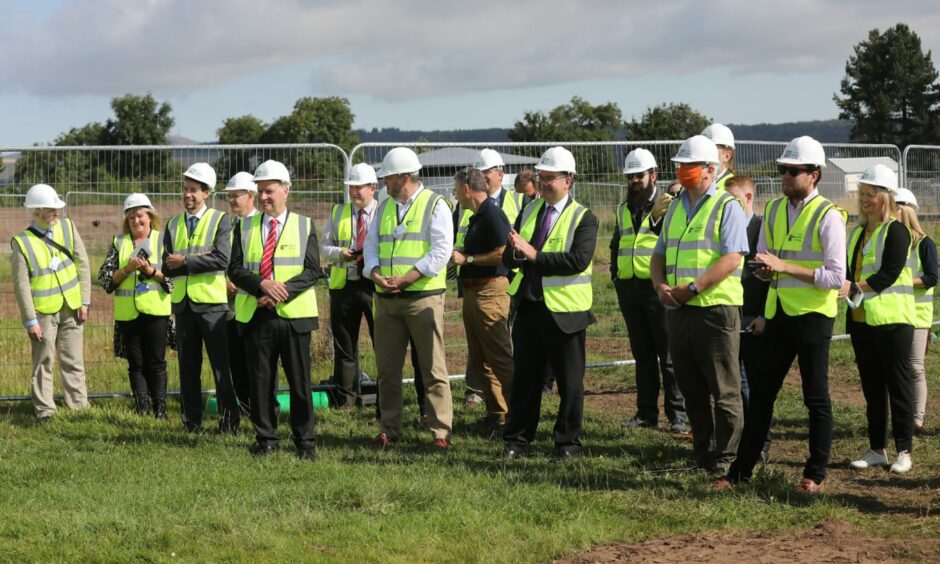New state-of-the-art science, farm and field facilities on the outskirts of Dundee will go a long way towards providing the answers to the global climate challenges facing the agricultural and food sectors, scientists and politicians have promised.
The assurances were given at an official breaking-ground ceremony for the construction of the £62 million International Barley Hub (IBH) and the Advanced Plant Growth Centre (APGC) at the James Hutton Institute’s (JHI) Invergowrie campus.
The ground has now been officially broken to mark the start of building works for @IntBarleyHub and @APGCScotland, two key #plantscience #innovation projects funded by @UKGovScotland and @scotgov through the @taycities Deal, with expected completion in early 2024. pic.twitter.com/AzOTptAYaY
— James Hutton Institute (@JamesHuttonInst) August 26, 2021
The buildings, funded through the Tay Cities Region Deal, are scheduled to be completed in early 2024.
The Scottish Government’s Rural Affairs Secretary, Mairi Gougeon said the work that would be undertaken at Invergowrie would perfectly complement the government’s ambitions for a more sustainable agricultural sector.
“The IBH and the APGC will put Scotland at the forefront of where we want to be,” she said.
“Some of the crops we grow will face challenges through climate change, whether that’s pests or diseases, and it is critical to Scotland that we can future-proof them as much as possible.”
UK Government Minister, Iain Stewart said the projects would put the country at the forefront of global agricultural innovation and ensure food and drink production remained “dynamic, sustainable and secure”.
He added: “We will have to be more efficient and innovative in how we use our natural resources and produce crops for the future. The work happening here will be of international significance and will help populations around the world to make the best use of resources. It will be transformational.”

The IBH is the culmination of a long campaign by JHI which was backed by maltsters, distillers and farmers, and the institute’s leading scientists were also optimistic for the potential of the new facilities.
The hub’s chair, Professor James Brosnan said: “The IBH complements the existing spirit of collaboration in the barley supply chain and will provide the answers to our shared climate challenges through applied scientific excellence.”
Meanwhile, the APGC aims to revolutionise crop production systems to produce food locally, 365 days a year, with less environmental impact. Systems to be investigated include vertical farming using LED lights which have full environmental control and are located close to the population on unused derelict land.
The centre’s director, Professor Derek Stewart, said: “Today’s milestone reflects the aim of the APGC to break new ground in many areas related to our quality of life.
“This centre will allow us to develop and translate science that will lead to new productions systems like vertical farming, more accurately model climate change and its implications for plant and crop products such as food, pharma etc, and support food security through crop storage.”
The two projects aim to create over 470 jobs in the Tayside region and a further 2,200 jobs across the wider Scottish and UK economy.

